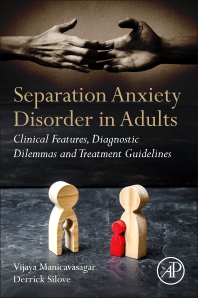Books in Clinical psychology general
Books in Clinical psychology general
- 1st Edition
- Volume 52
- April 19, 2020
- Marc Naguib
- English
- Hardback9 7 8 0 1 2 8 2 0 7 2 5 3
- eBook9 7 8 0 1 2 8 2 0 7 2 6 0

Advances in the Study of Behavior
- 2nd Edition
- April 14, 2020
- Timothy P. Melchert
- English
- Paperback9 7 8 0 1 2 8 1 6 4 2 6 6
- eBook9 7 8 0 1 2 8 1 6 6 2 0 8

Foundations of Health Service Psychology
- 3rd Edition
- April 11, 2020
- Nathan Hantke + 2 more
- English
- Hardback9 7 8 0 1 2 8 0 0 1 3 6 3
- eBook9 7 8 0 1 2 8 0 0 4 9 3 7

Handbook of Mental Health and Aging
- 1st Edition
- April 11, 2020
- Ashley Borders
- English
- Paperback9 7 8 0 1 2 8 1 2 5 4 5 8
- eBook9 7 8 0 1 2 8 1 2 6 3 1 8

Rumination and Related Constructs
- 2nd Edition
- March 20, 2020
- Peter Sturmey
- English
- Paperback9 7 8 0 1 2 8 0 5 4 6 9 7
- eBook9 7 8 0 1 2 8 1 3 4 2 9 0

Functional Analysis in Clinical Treatment
- 1st Edition
- March 12, 2020
- Vijaya Manicavasagar + 1 more
- English
- Paperback9 7 8 0 1 2 8 1 2 5 5 4 0
- eBook9 7 8 0 1 2 8 1 2 5 5 5 7

Separation Anxiety Disorder in Adults
- 1st Edition
- February 22, 2020
- Andrew Thompson + 1 more
- English
- Paperback9 7 8 0 1 2 8 1 3 2 0 1 2
- eBook9 7 8 0 1 2 8 1 3 2 0 2 9

Risk Factors for Psychosis
- 1st Edition
- January 31, 2020
- Matthew Tull + 1 more
- English
- Hardback9 7 8 0 1 2 8 1 6 0 2 2 0
- eBook9 7 8 0 1 2 8 1 6 2 8 9 7

Emotion in Posttraumatic Stress Disorder
- 1st Edition
- January 13, 2020
- Dan J. Stein + 1 more
- English
- Paperback9 7 8 0 1 2 8 1 5 0 6 3 4
- eBook9 7 8 0 1 2 8 1 5 0 6 4 1

Global Mental Health and Neuroethics
- 1st Edition
- January 9, 2020
- Brad Bowins
- English
- Paperback9 7 8 0 1 2 8 1 9 6 2 5 0
- eBook9 7 8 0 1 2 8 2 0 9 5 6 1
